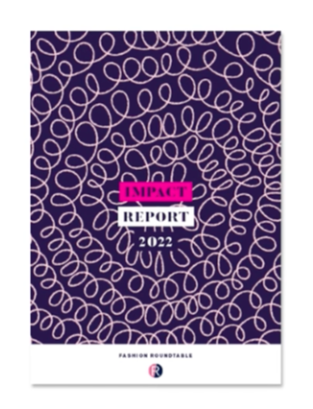Informer
Our Impact In 2022 And What's Next
Last week, we launched our Impact Report for 2022. Fashion Roundtable have consistently been the first to address the challenges of Brexit; Covid-19; climate change; exploitative working practices; Extended Producer Responsibility (EPR); VAT reduction for sustainable businesses; issues around fibre and localism; and inclusion in fashion. We use our platform to highlight inequalities across the fashion industry and to effect long-lasting social, business and environmental change.
The art of looking back to inform the future of Welsh wool: A conversation with Kate Fletcher and Mathilda Tham
Writer, Meg Pirie, in conversation with Kate Fletcher and Mathilda Tham about Welsh wool, the climate crisis and the importance of localism for the next generation.
From Soil To Skin: Provenance Is Key. Why We Must Use UK Wool. Op-Ed by Ruth Alice Rands, Founder of HERD.
I am often asked where the idea for a soil to skin, vertically integrated yarn and knitwear brand came from - and perhaps HERD would never have come into being without these unconventional roots - but it actually came from seaweed of all things, in my prior brand where we sourced wild, naturally occurring seaweed directly from harvesters around the U.K, Ireland and Northern Europe.
The Launch of Wool Week by Charles Ross
Salts Mill hosted the Campaign for Wool's launch event leading to the current Wool Week last Thursday night. The Heritage site in Bradford (the cultural capital of the worlds's wool industry) is to the keratin fibre what Bournville is to Chocolate.
Prickly Thistle’s Journey Championing British Wool
This week, we hear from owner Clare Campbell, the founder of Prickly Thistle, the only B Corp mill in the UK. Over the last few years Clare has been collaborating with academics and students in Scotland undertaking fundamental research into effectively taking coarse dense British wool fibres and making them suitable for apparel. Clare shares Prickly Thistle’s goal for social equity and offers insight into why as a country with over 30 million sheep, we imported 36.13 million kilograms and exported 20.5 million kilograms of wool in 2021 alone. A staggering fact as we move yet further into a state of climate emergency.
The Welsh Wool Sector in Crisis: Why Urgent Government Support is Needed
In less than a century, the bustling network of 217 mills spread across Wales has drastically diminished to just 8 mills. The closure of the global markets due to Covid restrictions has now resulted in a 50 per cent decline in wool auction prices. For many, the costs of shearing the sheep, packing and shipping the fleeces has far outweighed their financial return. Consequently, wool has either been composted, or burned. Here we explore how the Welsh woollen industry— with the right support— offers huge potential. As a sustainable, luxury product, it can be produced entirely in this country, creating much-needed jobs for local communities and financial return to the economy.







